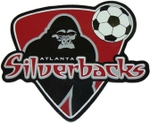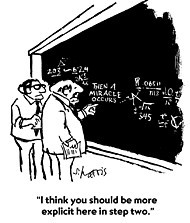My local soccer club went toes-up yesterday.
The Atlanta Silverbacks, in the minor-league USL, announced they won’t play next year.
The decision was a no-brainer. Since U.S. soccer lacks the promotion-and-relegation process that lets every European team hope it can score the big bucks, there is no upside to the investment. Without an upside it’s all ego. Amazing how, when things go bad, ego becomes the first casualty.
Soccer isn’t the only troubled sport. Arthur Blank, who owns the Atlanta Falcons, is cutting back, both in business and in charitable giving. The Home Depot co-founder has found there is a bottom to his pocket.
Blank’s cutbacks put the lie to the Silverbacks’ excuse for folding, namely the chance the MLS will move a team in here. Blank was the money man behind that speculation.
All this reveals an important truth about how the economics of sport have changed in this decade, and given us a taste of things to come.
The sport business is about one word — equity. It’s not
about profit-and-loss, as it is with, say, a chain of hardware stores.
You hope to break even, but most clubs actually lose money. This is
especially true in sports, like hockey and soccer, without big TV
contracts. Both have reacted to this truth with salary caps, but can
the caps come down when times get tough, especially when you’re facing
an international competition for talent and your market knows when the
product is poor?
For the Silverbacks it was the perception that the team was minor
league which did them in. That means there was no press coverage, and
thus no way to build the fan base except through grassroots kids’
soccer. That was building slowly, the team having even gotten its own
small stadium a few years ago (with a plastic pitch no less), but there
was never enough income to match the outgo.
The key truth about the current recession is that equity values are
collapsing, everywhere. Businesses that have value are those that have
working business models, models where income exceeds outgo and where
there is hope for even-greater efficiency to increase profit margins.
Even those businesses, like Intel, are taking severe haircuts in the
current panic.
So most sports teams are going to take much more severe haircuts in their equity value than Intel. Sport by its nature is an ego-driven, discretionary spending business. I take great enjoyment from European soccer, for instance, but I only pay $6/month to feed the need, and other fans can do likewise.
As TV ad revenues decline (did you notice the Big Three automakers say they’re moving it all to the Web?) contracts based on revenue, like those of Major League Baseball and the NHL, lose value automatically. With fewer fannies in the seats, a falling equity stake, other businesses demanding attention, and less TV money, what’s an owner to do? Do you feed your family or feed your ego?
Fold ’em. You may be surprised at what sports franchises go toes-up over the next year or two. When major league clubs decide they can’t proceed the recession will really hit home.












